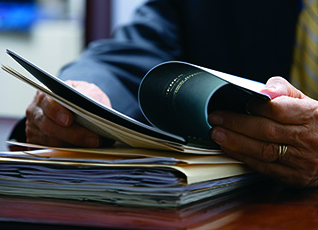Do Business Valuation Standards Apply to Non-Accredited CPAs?
Will the valuation report prepared by the non-accredited CPA be admitted?
The author was recently involved in an Oklahoma domestic relations case where the opposing expert contended he did not have to abide by AICPA valuation standards, reporting or otherwise, since he was not a member of the organization. This article summarizes how this issue was handled by the Oklahoma judge.

In this time of business valuation organizations promulgating valuation standards at a level that seem to some to be “standards overload”, the question of whether any of these valuation standards (ASA, NACVA, IBA, AICPA, etc) apply to an expert CPA valuator may seem somewhat farfetched. This, however, became the pivotal point in a recent court case involving an accredited valuation expert and a CPA expert who, while non-accredited, was an experienced valuator with extensive testimony experience.
I was recently involved in a marital dissolution case in Oklahoma where the expert on the other side was a CPA. He was not a member of any business valuation accrediting organization or an AICPA member. He took the position that he was not bound by any of the organizational valuation standards including Statement on Standards for Valuation Services (SSVS) No. 1. In defense of this position, the counsel that retained him pointed out that while the expert was a CPA, he was not a member of the AICPA or any other standards issuing organization. To further bolster this argument, the portion of Paragraph No. 1 of SSVS 1 stating, “This Statement establishes standards for AICPA members…,” was read into the record. Does SSVS No. 1 apply to a CPA that is not an AICPA member? The answer is, it depends.
In this case, the CPA expert’s argument was not upheld and it was found that AICPA standards did, in fact, apply to his work. The finding was based on the fact that the state board of accountancy issuing the expert’s license to practice had included in its statutory requirements the statement, “…registrant shall conform in fact and appearance to the AICPA Code of Professional Conduct,” thereby making all CPAs in the state subject to AICPA valuation standards even though they may not be members of the AICPA. The vast majority (approximately 75 percent) of the states have adopted similar requirements in their statutes or rules. Had this case been heard in one of the states that make up the remaining 25 percent, the CPA expert’s substandard work product might have been admitted absent a successful Daubert challenge. As demonstrated by this case, it is imperative that everyone involved in the valuation and litigation process be aware of not only the necessary professional standards, but also how they are applied.
Nick L. Gales CPA, CVA, ABV, CFF, MAFF is a seasoned valuator who has testified in many Federal and state cases. He has served on numerous NACVA boards and committees, as well as being recognized as a NACVA Instructor of Distinction for five consecutive years.










Jim Alerding
When the SSVS was written this is the way it was intended, i.e. that if the CPA was not a member but in a state where the Board of Accountancy adopts the AICPA Standards then that CPA would be required to comply with the SSVS. The interesting thing to note here is that the CPA and the attorney he worked with were ignorant of the rules of the State Board of Accountancy which clearly required compliance with the SSVS. I continue to be amazed at cases like this.
MR
I’m not understanding the connection between the “registrant shall conform in fact and appearance to the AICPA Code of Professional Conduct,” and
“thereby making all CPA’s in the state subject to AICPA valuation
standards even though they may not be members of the AICPA.” Isn’t the Court just saying that CPAs who aren’t members of the AICPA still need to comply with the AICPA Code of Professional Conduct in accordance with the Oklahoma Board of Accountancy rules? How do the AICPA valuation standards enter?